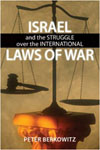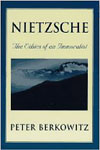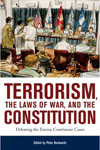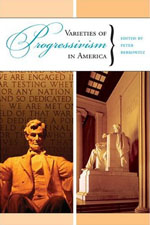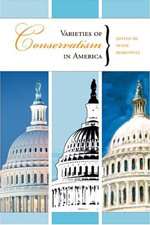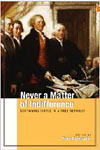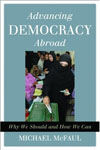The Responsive Community, Fall 1995
Communitarian Criticisms and Liberal Lessons
A review of Communitarianism and its Critics by Daniel A. Bell, Looking Backward by Derek Phillips, and Liberals and Communitarians by Stephen Mulhall and Adam Swift
It is well known that a single work published in 1971, Rawls's A Theory of Justice, has been largely responsible for placing a form of liberalism, one devoted to both the protection of individual liberty and the securing of the social and economic bases of equality, at the top of the agenda of academic political theory. Inadequate consideration, however, has been given to the fact that, even though liberalism has a long and vaired history, the family of criticisms of liberalism which sprang up in the 1980's understood liberalism--even when not explicitly addressing Rawls's work--in roughly the way Rawls presented it.
This family of criticisms focused primarily on three areas: liberalism's alleged indifference to conceptions of human flourishing; its supposed exclusion of the pursuit of higher goals from the domain of politics; and inattention to the ways in which a well-ordered society and a good life depend upon the exercise of virtue, the responsibilities of citizenship, and participation in a common political life. Somewhat misleadingly, this family of criticisms came to be known as the communitarian critique of liberalism.
The communitarian critique was promptly countered by a rejoinder from a variety of liberals, including Rawls himself. The liberal rejoinder tended to pursue two lines of argument: First, that the communitarian critics mischaracterized liberalism, attributing to it rigid theoretical dichotomies and implausible assumptions about moral psychology and social life to which liberals were not committed either by intent or by implication; and second, that many of the practical reforms that communitarians endorsed were viable and indeed desirable within a liberal framework.
Several books published in the last few years show that the time is ripe to take a step back and assess the course that the argument between liberals and their communitarian critics has run. There can be little doubt that the debate has been fruitful for liberalism. It has spurred liberals to articulate a richer and more flexible liberalism that is less embarrassed to acknowledge its dependence on institutions, practices, and beliefs which fall beyond the range of the liberal theorist's special expertise and the liberal regime's assigned jurisdiction. This more reflective and self-conscious liberalism is also better able to recognize its limitations and thus take measures to compensate for its weaknesses and disadvantages. And thanks in part to the communitarian challenge, liberal theorists have increasingly come to appreciate the capacity of a liberal framework to respect the role of moral virtue, civic association, and even religious faith in the preservation of a political society based on free and democratic institutions.
A Communitarian Critique of Liberalism
Daniel A. Bell, author of Communitarianism and its Critics, might well take exception to the emphasis I have placed on the advantages that have accrued to liberalism as a result of its encounter with communitarian criticism. For Bell argues that communitarianism constitutes a distinctive and desirable alternative to liberalism, and in his book, a lively dialogue between two Ph.D. candidates, one a communitarian and the other a liberal, he seeks to set forth a communitarian moral vision and explore some of its political implications.
Bell's charming dialogue captures the spirit of the countless lively conversations that have transpired in university classrooms and cafeterias over the last decade as students have struggled to make sense of the varieties of criticism that leading communitarian theorists have levelled at liberalism. Yet Bell's dialogue is also valuable for the way in which it inadvertently displays a characteristic weakness of communitarian criticism. Although Bell plainly seeks to lay out the best arguments available on both sides of the debate and often admirably succeeds, he stacks the deck against liberalism by idealizing his communitarian heroine while depicting her liberal antagonist as inept and slightly pathetic. By making the communitarian, Anne, cosmopolitan, loyal to friends and family, progressive, and sensitive to the variety of ways of being human, while depicting Philip, the liberal, as an insecure, uncultivated, smug, sexist boor, Bell gives dramatic expression to the tendency on the part of communitarian thinkers to direct their criticism against a narrow and one-dimensional understanding of liberalism.
This unfairness to liberalism should be embarrassing to communitarians, for in criticizing liberalism, communitarians have often neglected their own interpretive principle that to understand a belief or practice it is necessary to see it in the context of the tradition of shared meanings out of which it arose. Communitarians themselves have typically failed to appreciate that liberal thought is a tradition with a rich and varied history, and have neglected to understand liberal regimes in context as basic institutional frameworks for coping with a specific array of concrete challenges in a particular set of historical and cultural circumstances.
Bell understands liberalism as Rawlsian liberalism, and understands Rawlsian liberalism as a comprehensive doctrine that is rooted in a vision of the autonomous self always capable of standing apart from and revising its ends. This comprehensive doctrine, according to Bell, requires state neutrality toward competing conceptions of the good life and hence is incapable of remedying or even addressing the harmful effects of the atomizing tendencies generated by contemporary liberal society. Giving too much attention to individual choice and paying too little attention to the common good, liberalism, Bell maintains, is responsible for a variety of social pathologies and is unable to respond to "communitarian concerns about loneliness, divorce, deracination, political apathy, and everything else connected with the breakdown of community in contemporary Western societies" (p. 11).
Communitarianism, Bell argues, can offer a more compelling vision of the self, a richer account of politics, and a better understanding of the common good. And Bell maintains that communitarianism's superiority as a moral and political theory stems from the fact that it reflects our deepest shared understandings about the role that constitutive communities play in a well-lived life. Communitarians emphasize that human beings are not fundamentally autonomous or unencumbered selves but first of all social beings embedded in practices and beliefs that we do not make but which rather, in a sense, make us by constituting our identities and forming the frameworks within which we come to understand ourselves and know and care about others. From this metaphysical claim about the constitution of the self, and out of concern for the dignity and well-being of the individual selves that are so constituted (though they often fail to reflect on the provenance of this concern), communitarians infer the practical imperative to sustain and protect constitutive communities such as families, religions, the nation, and the variety of civic associations that give human life substance and depth.
Bell is aware of the standard liberal fears that communitarianism arouses--that communities can be conformist, stultifying, and seedbeds of prejudice and superstition, and that communities may trample over individuals in the quest to achieve collective goals--but he does not take them very seriously. He claims tht such fears arise from purely abstract theoretical concerns but in practice do not reflect real threats are weak and unconvincing. His own examples, though, suiggest otherwise.
For instance, Bell quickly dismisses the idea that the German people's embrace of Nazism reflected anything important about their shared values. Instead he speculates that Hitler managed to seduce them into embracing ideas at odds with their "prevailing moral beliefs and intuitions" by exploiting Weimar's economic and political instability. Ironically, while Bell chides liberals for engaging in counterfactual history and neglecting the traditions of actual communities, he himself here substitutes a speculative hypothesis for a consideration of the considerable historical evidence that traditional German culture--especially the well-documented prejudice against the Jews that had marked German culture since the Enlightenment--made the Germans particularly vulnerable to Hitler's terrible demagoguery. Similarly, Bell briskly rejects the view that Apartheid reflected the "prevailing moral beliefs and values" of white South Africans. Instead, Bell suggests, Apartheid stemmed from a failure by white South Africans to recognize the import of their deepest beliefs and intuitions. Maybe so. But Bell provides little evidence to support his suggestion and scarcely acknowledges the possibility that belief in the need to segregate the races--even if it was in tension with an unarticulated belief in the equality of human beings--was deeply held by white South Africans.
In short, in his effort to quiet liberal worries about the communitarian abandonment of universal moral standards or rights, Bell comes very close to relying on the hope that "prevailing moral beliefs and intuitions" always more or less conform to basic liberal or universal principles; when they appear not to do so it is only because the community has failed to recognize or live up to the principles most its own. Gliding by the experiences of actual historical communities, Bell escapes to abstract theory to arrive at the dubious proposition that communities cannot be constituted by deeply held beliefs that are wrongheaded or evil.
Communitarianism?--Or Liberalism Properly Understood
Bell believes that the theoretical differences between liberalism and communitarianism have important practical consequences, and he seeks to show the distinctiveness of communitarian theory by identifying policy recommendations for the United States that flow from it. His communitarian proposals include stricter divorce laws, legalization of gay marriage, mandatory national service, civic education, and in general laws that encourage citizens to recognize that their own good consists in seeking the good of their nation.
But despite Bell's insistence on the distinctiveness of communitarian theory, liberal principles are hard at work in his vaguely familiar amalgam of prescriptions. For example, Bell favors gay marriage in part based on the argument that homosexuals, like all citizens, "should have access to structures that enable them to express their identity" (p. 169). In other words, respect for individual choice and egalitarian claims about personal dignity and self-expression--the very stuff of contemporary left-liberalism--undergird Bell's communitarian view that homosexuals be permitted by the state to enjoy such shared goods as flow from the institution of marriage.
In his suppressed but fundamental reliance on moral principles rooted in contemporary liberalism, Bell is not alone among communitarian theorists. For example, in an instructive article on religion and constitutional law, Michael Sandel appears to take a stand against liberalism by arguing that the liberal principle of neutrality embedded in recent Supreme Court jurisprudence not only unwisely limits the public role of religion, but also discriminates against those for whom religious belief is constitutive of their identities ("Religious Liberty--Freedom of Conscience or Freedom of Choice?" in Utah Law Review, 1989). Yet Sandel does not defend believers in traditional religion because he thinks their beliefs are true, or even useful to the larger political community. Rather, Sandel's key criticism of the contemporary liberal doctrines of freedom of choice is that it "fail[s] to respect persons bound by duties derived from sources other than themselves" (p. 611, emphasis added). In effect, Sandel attacks contemporary liberal jurisprudence because it fails to make good on the liberal promise to respect persons by promoting neutral laws. Sandel does not so much argue against neutrality, but rather, animated by an appreciation of the ways in which individuals are constituted by attachments and obligations not of their own making, he argues in favor of a truer neutrality, a more expansive and inclusive notion of neutrality than that envisaged by Rawlsian liberals.
The time has come for communitarian-inspired theory to recognize the extent to which its criticisms and aspirations rest on and derive support from liberal principles. To do this, communitarians must avoid confusing Rawls's liberalism with liberalism as such. They must develop a greater appreciation of the historical varieties of liberalism. And they must reflect upon the implications for practice of the political conditions that their visions of reform usually presuppose, in particular a limited constitutional government, and a free, democratic, secure, stable, and prosperous society.
In a revealing passage, Bell has his protagonist explain that there is no need for communitarians to worry about state coercion in measures designed to foster deeper communal attachments, because "basic civil and political liberties are taken as self-evident truths in liberal democracies, not in need of any justification" (p. 229). This belief, however, is historically uninformed and politically naive. As Rogers Smith has vigorously argued, liberalism in America has always had to contend with multiple and conflicting traditions ("Beyond Tocqueville, Myrdal, and Hartz: The Multiple Traditions in America," in American Political Science Review, September 1993). Smith emphasizes, moreover, that liberalism's triumphs have been achieved through great struggles; and recent controversies in the United States--the multicultural quest for inclusion, the attack on civil liberties at the universities in the name of upholding a civilized community life, the debate over electoral reform to insure minority representation--along with the explosion of ethnic and nationalist hatred abroad, suggest that liberalism's struggles have by no means come to an end. What is especially needed now is a better understanding of the delicate interplay in liberal democracies between the goods of liberty and community, and a more supple appreciation of the alarming process by which the actualization of liberal and democratic principles has worked to corrode the very forms of association which sustain the practices of democratic self-government.
A Liberal Case Against Community
Like Bell, but this time on behalf of liberalism, Derek Phillips seeks to drive a wedge between communitarianism and liberalism. In Looking Backward, Phillips argues that communitarian aspirations are in fact rooted in mistaken notions about the extent and quality of community in the past. Communitarian theorists, Phillips observes, routinely contrast atomistic and acquisitive liberal society to a past in which people enjoyed the benefits of rich and robust community life. But, Phillips charges, communitarian theorists seldom define carefully what is meant by community and rarely supply historical evidence to support their contention that community as they understand it was once widespread and vibrant.
Phillips sets out to correct these oversights. Drawing on key statements by principal communitarian thinkers, Phillips defines community as "a group of people who live in a common territory, have a common history and shared values, participate together in various activities, and have a high degree of solidarity" (p. 14). He then seeks to refute or at least discredit communitarianism by showing that such community did not flourish during the periods--revolutionary America, the High Middle ages, and fifth century Athens--that communitarians characteristically invoke. Yet the evidence of hierarchy, conflict, and severely limited political participation in each of these eras that Phillips assembles actually shows something quite different: what was rare in the past was a specific form of community, egalitarian community.
Such historical knowledge is a welcome element in all thoughtful consideration of programs for building community in the present. Yet one can no more refute communitarianism by revealing a historical association between a politics of the common good and hierarchical and fractious social relations than one can rebut liberalism by showing that it has a tendency to produce atomized individuals and a culture of narcissism. Critics of communitarianism such as Phillips, who focus on the shortcomings of the historical communities from which communitarian theorists draw inspiration, offer scant reply to the central communitarian criticism: By resolutely working to emancipate the individual from authority, liberalism has contributed to the breakdown of the family, the dissolution of religious faith, the neglect of the wisdom embodied in custom and tradition, the erosion of civic associations, and consequently, to the formation of self-centered, isolated, and apathetic individuals poorly suited to the demands of self-government.
Let us grant Phillips' key points: Egalitarian community seldom flourished in the past; the realization of an unqualified communitarian ideal would require an oppressive cultural homogeneity; a vigorous pursuit of community requires distinguishing members or insiders from nonmembers or outsiders and hence policies of exclusion; and a politics of the common good can be, and historically has been, an aristocratic undertaking by the wealthy and leisured few. What do such revelations tell us about the steps American liberalism may take, consistent with its own principles, to fortify itself by fortifying the various forms of community and voluntary association within the liberal state?
Phillips thinks that revelations about the patterns of community in the past are extremely damaging to the communitarian perspective. In forming this judgment Phillips, like Bell, sharply distinguishes between the communitarian and liberal viewpoint; and, like Bell, Phillips asks us to choose between a communitarian political theory focused on community, virtue, and the common good, and a liberal one devoted to protecting individual rights and securing equality. But is this not a false choice?
Toward a Liberal Synthesis
That the dichotomy on which Bell the communitarian and Phillips the liberal agree is false is one claim of an impressive and tightly argued volume called Liberals and Communitarians. The co-authors, Stephen Mulhall and Adam Swift, blend their voices to produce a sympathetic reconstruction of the twists and turns that the quarrel between academic liberals and their communitarian critics has taken, and in the process Mulhall and Swift effectively offer a "synthetic resolution." Their fine book is not really an introduction, but rather a perceptive and critical exposition, for those already immersed in the controversy, of the major voices in the debate over academic or Rawlsian liberalism. Although, as the Preface explains, one of the authors has more liberal leanings and the other stronger communitarian inclinations, their book is not a dialogue, but rather the ripe fruit of a long dialogue between themselves and the political theorists whose views they explore. Mulhall and Swift conclude that a political theory that recognizes the primacy of the liberal principle of personal liberty or autonomy while giving due weight to the communitarian insight into the self's dependence on constitutive communities is possible, desirable, and well on the way to being worked out by leading liberal theorists.
In their discussions of Rawls's recent work and the liberalism of Joseph Raz, Mulhall and Swift indicate the nature of the "synthetic resolution" they favor by showing how communitarian considerations can be incorporated into a liberal framework. Thus, for example, they show that in Political Liberalism Rawls in effect responds to the criticism that his theory of justice relies upon a controversial metaphysical notion of the autonomous self by arguing that the principles of liberal justice as he understands them should not be embraced on metaphysical grounds, but because they can be publicly justified to the vast majority of members of a pluralist society. His own theory of justice, he explains, is an elaboration of basic, widely shared intuitions about justice among citizens in liberal democracies.
Insofar as his empirical claim about what citizens actually believe is correct, Rawls can be seen as engaged in the communitarian project of refining and elaborating his community's shared meanings. But this cannot be all that Rawls is doing. As Mulhall and Swift shrewdly point out, Rawls's motivation for finding and articulating the deepest beliefs of citizens and his commitment to the public justification of basic principles of justice is itself motivated by the liberal premise that citizens are free and equal, and that citizens show one another the respect each deserves by framing political arguments in terms that all reasonable persons can acknowledge.
Like Rawls, but more expplicitly and delierately, Jospeh Raz rejects the hard and fast opposition between liberalism and communitarianism. Mulhall and Swift show that in The Morality of Freedom, Raz puts forward a perfectionist liberalism that defends autonomy as an ideal that liberal states should actively pursue. But autonomy, as Raz understands it, depends upon the discipline provided by a specific politiical culture and is achieved ina variety of voluntary associations and common activities. In carrying out its task of promoting autonomy, and consistent with the principles of toleration, the liberal state, Raz argues, ought to foster the forms of community in which autonomy can be most effectively exercised and most fully enjoyed.
By building on arguments and insights made prominent by communitarian thinkers, Rowls's poltiical lioberalism and Raz's perfectionist liberalism admirably exemplify the flexibility, sympathy for the viewpoint of others, and self-critical rationality that characterize the liberal spirit at its best. But their contributions to the tradition should not be confused with the tradition itself. To appreciate the liberal spirit in its fullness, one must go beyond the local and at times parochial debate that Mulhall and Swift have so skillfully reconstructed. One must explore the neglected resources within the classical liberal tradition--a tradition ranging from Milton and Spinoza, through Locke, Montesquieu and Madison, to Kant, Mill, and Tocqueville--to understand the always changing and ever elusive balance between right and duty, private life and the public good, and the claims of equality and the demands of excellence on which limited self-government depends. This is not at all to say that the liberal tradition has all the answers to the questions raised by critics, communitarian or otherwise, but it is to maintain that one will not understand the real limits of contemporary liberalism before one understands liberalism at its best.
The communitarian critique of Rawlsian liberalism did a great service by focusing attention on dimensions of moral and political life that recent academic liberal theory had neglected. This was a genuine achievement. "Rights talk" is now balanced by attention to responsibility and duty; leading liberal thinkers find themselves preoccupied with the content of character; and concern for the dignity and well-being of individuals has been complemented by consideration of the role that communities play in forming individuals who are capable not only of caring for themselves and cooperating for mutual advantage, but also of developing enduring friendships, sustaining marriages, and rearing children.
Despite initial, giddy speculations about theoretical breakthroughs and eager expectations of the development of a new political alternative to liberalism, few communitarian critics are eager to say farewell to fundamental liberal principles. And liberal theorists have increasingly come to recognize that the practice of limited constitutional government, the protection of basic individual rights, and the promotion of virtues such as toleration depend in part on citizens who are experienced in the art of association. It is high time that the communitarian critique of liberalism be seen for what it has been at its best--in Michael Walzer's felicitous phrase, a "communitarian correction" of liberalism, that is, a form of criticism generated by and especially pertinent within a liberal framework. The serious question is how well contemporary liberalism can be taught to care for what in the recent past it has been inclined to neglect--the responsibilities of citizenship, the cultivation of moral virtue, and the art of civic association--but which political theory and historical experience suggest it ignores at its peril.

